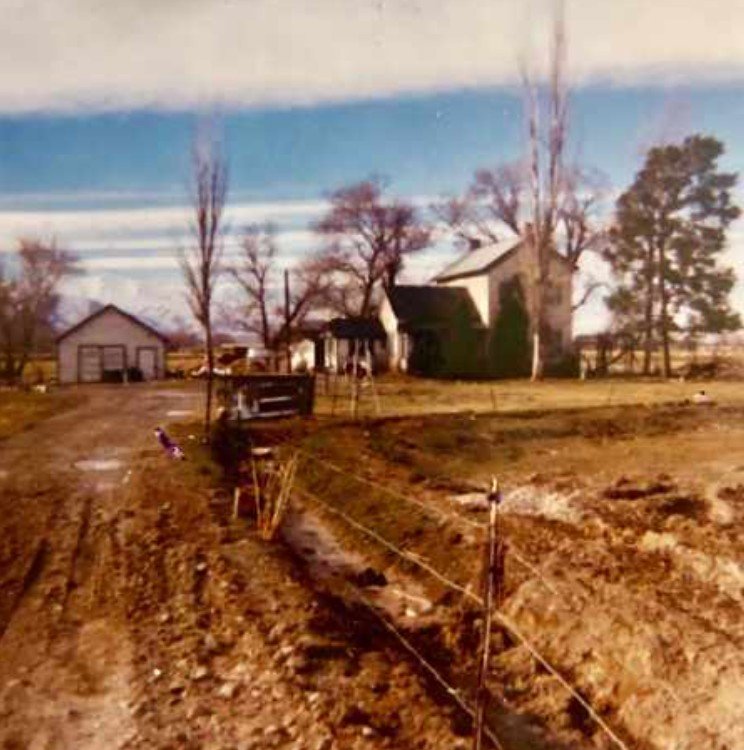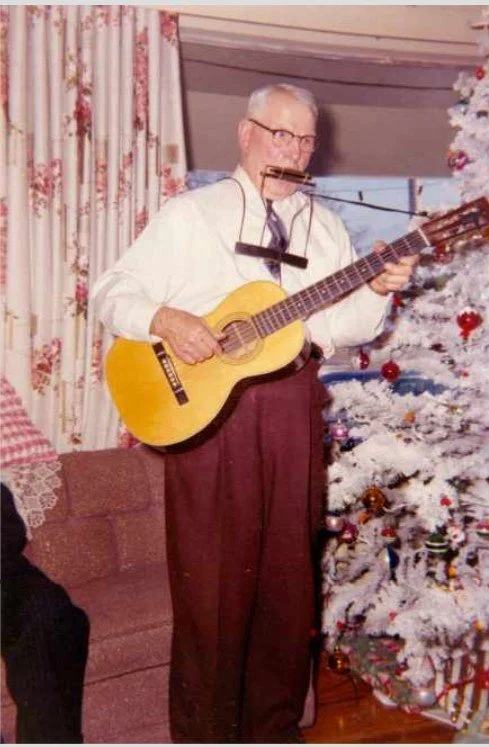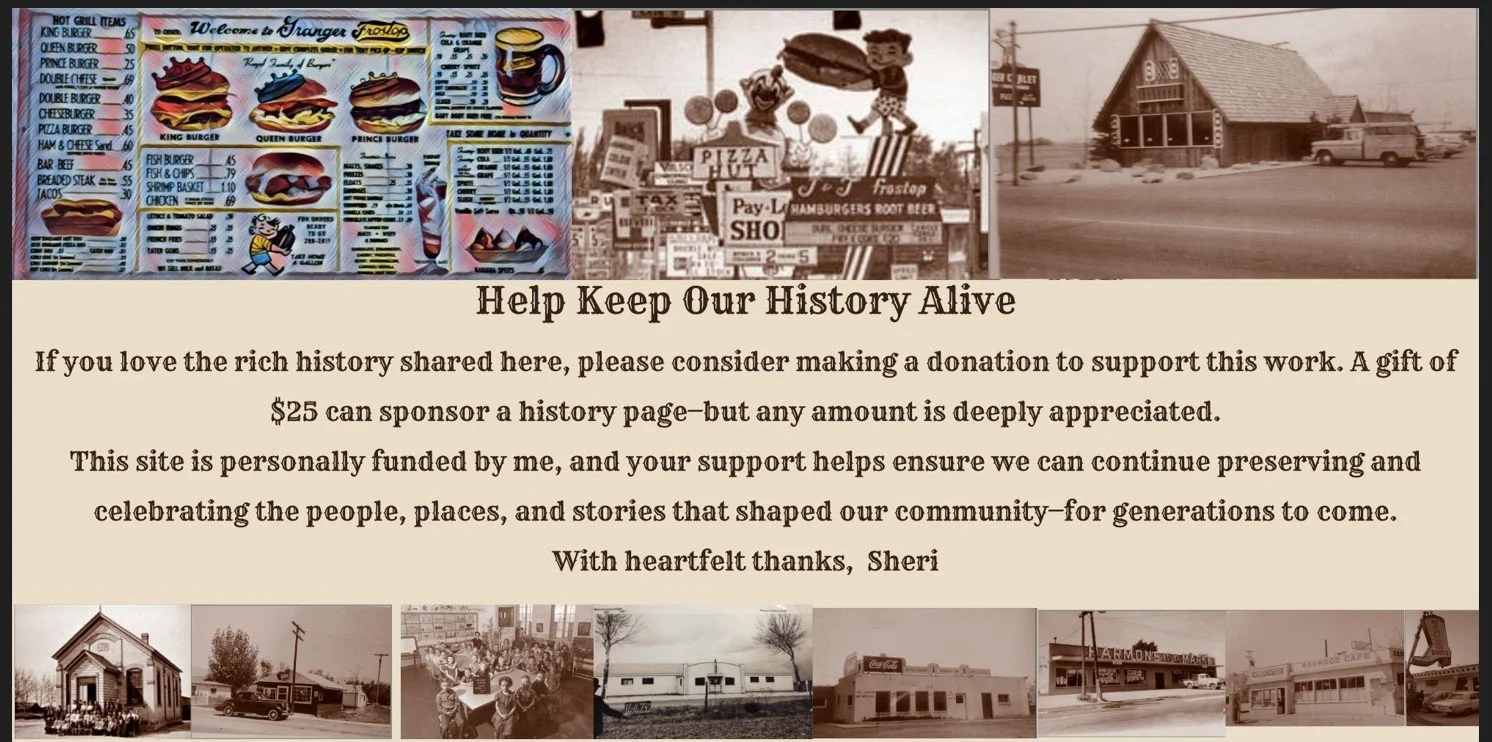Abe Todd of Granger: A Life of Land, Family, and Fiddle Tunes
Abraham Alexander Todd: A Granger Son’s Story
Abraham Alexander Todd was born in 1879 in the Granger Ward of Salt Lake County, Utah — the youngest son of English immigrants Abraham Todd and Ann Tofts Todd. His parents had crossed the ocean and the plains as Latter-day Saint pioneers, leaving behind their homeland to build a new life of faith, hard work, and farming on the open land west of the Jordan River.
Abraham — known to family and friends as Abe — grew up in a large family of seven sisters and two brothers. Two of his older sisters had been born in England; the rest were born on Utah soil. From the start, life on the Todd homestead demanded grit and resourcefulness. Abe attended school when he could in a tiny one-room schoolhouse about a mile and a half away. But more often than not, his days were spent herding the family’s cows and sheep, sometimes walking miles through sagebrush and snow to keep the animals safe and fed.
When he did get to school, Abe also worked as the janitor. For six dollars a month, he hauled in coal, made the morning fire, dusted benches, swept floors, and carried in fresh water — all before his own lessons began. If you made it to the “fifth reader,” you were doing well in those days; a little schooling and a lot of farm work made up the Todd children’s education.
At about 18, Abe took charge of 80 acres of family land, plowing with a team of horses and his own hands. He grew grain, potatoes, corn, and tended gardens to help feed his family and neighbors.
Around 1900, Abe married Sadie Shafer, and together they had two children: Minnetta and Lavon. Heartbreak came early — Lavon died as an infant, and Sadie passed away in 1904. Abe was left a widower and farmed alone for several years. He worked wherever he could find wages — helping build the towering Garfield Smelter smokestack (he was the first man to climb its 300-foot height) and taking railroad jobs as far away as Caliente, Nevada, before returning home to farm again.
Abe found joy in simple pleasures. He loved skating and dancing at the Odeon Dance Hall, where he met Victoria Rindfleisch. They married and built a big, happy family: Eugene, Dorothy, LaVelle, Della, Ralph, and Faye. Abe and Victoria later took their children to the temple to be sealed together forever — a moment of deep faith and family pride. Their eldest son Eugene served a mission for the Church in the Western States, carrying forward the legacy of faith that had brought Abe’s parents to Utah decades before.
Abe’s life brimmed with stories of adventure and mishap on the land he loved. He and his brother Charles herded sheep through East Canyon, fending off bears and storms. On hunting trips, runaway horses turned camp wagons upside down — and once, he gathered ducks frozen in Decker’s Lake without firing a shot. He wrestled a Hawaiian camp hand for a bet (with one hand tied behind his back — and won), and helped dig the dusty roads of early Granger when paved streets were unheard of.
Music was one of Abe’s greatest joys. Alongside his brother Will, Abe played for countless dances — from Ruby’s Inn at Bryce Canyon to the Hotel Newhouse in Salt Lake, from local ward parties to broadcasts over KSL radio. The Todd brothers were known for reviving old-time tunes that got whole communities on their feet again.
Through all the hard years, Abe found comfort in his family. He lived for decades in the Todd homestead where he was born — first with his parents, then raising his own children and welcoming grandchildren to the same land his father had homesteaded. He worked the family farm with horses and hand plows before tractors ever rolled into Granger’s fields.
When he wasn’t farming or playing music, Abe liked to hunt, wrestle, and gather with neighbors to share stories — living proof of the resilience and warmth that defined so many early Granger families.
Looking back near the end of his life, Abe Todd summed up his greatest treasure: a close-knit family, good music, and the memory of work well done on land his parents had once crossed oceans and plains to call home. His story remains one more proud thread in the fabric of Granger’s history — a testament to faith, endurance, and the simple joys of a life rooted deep in family and community.
1945



